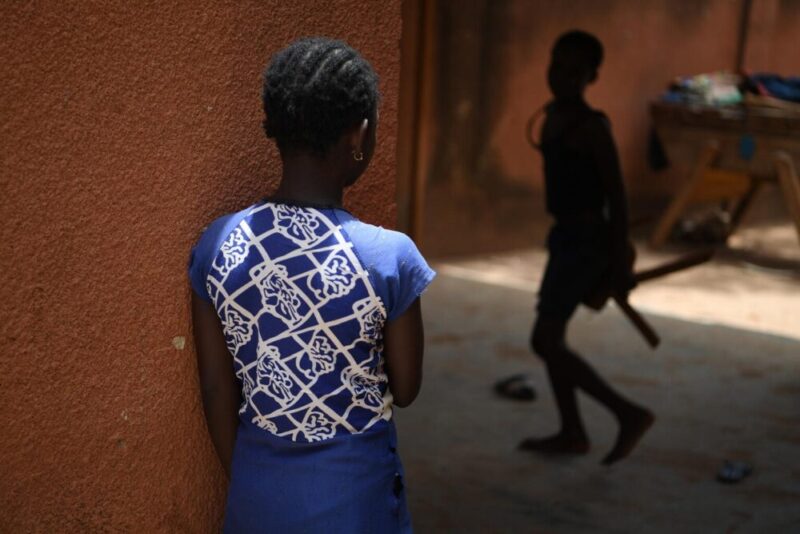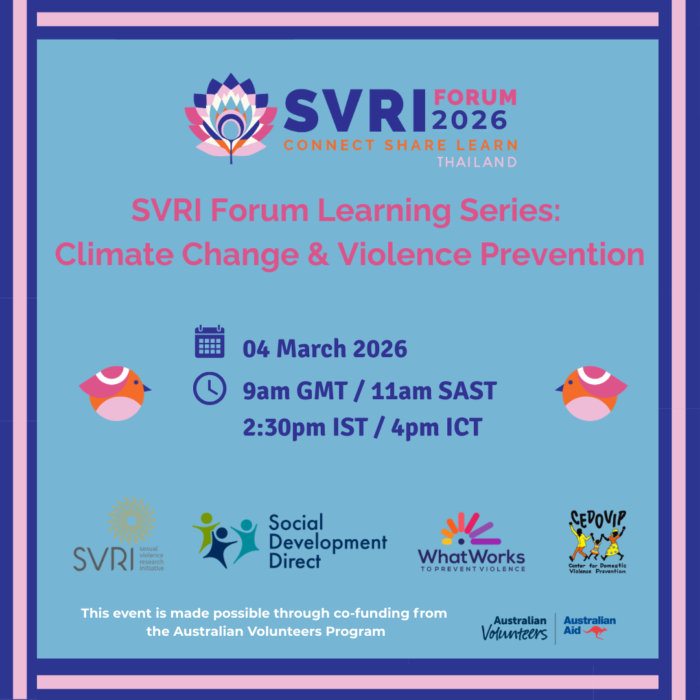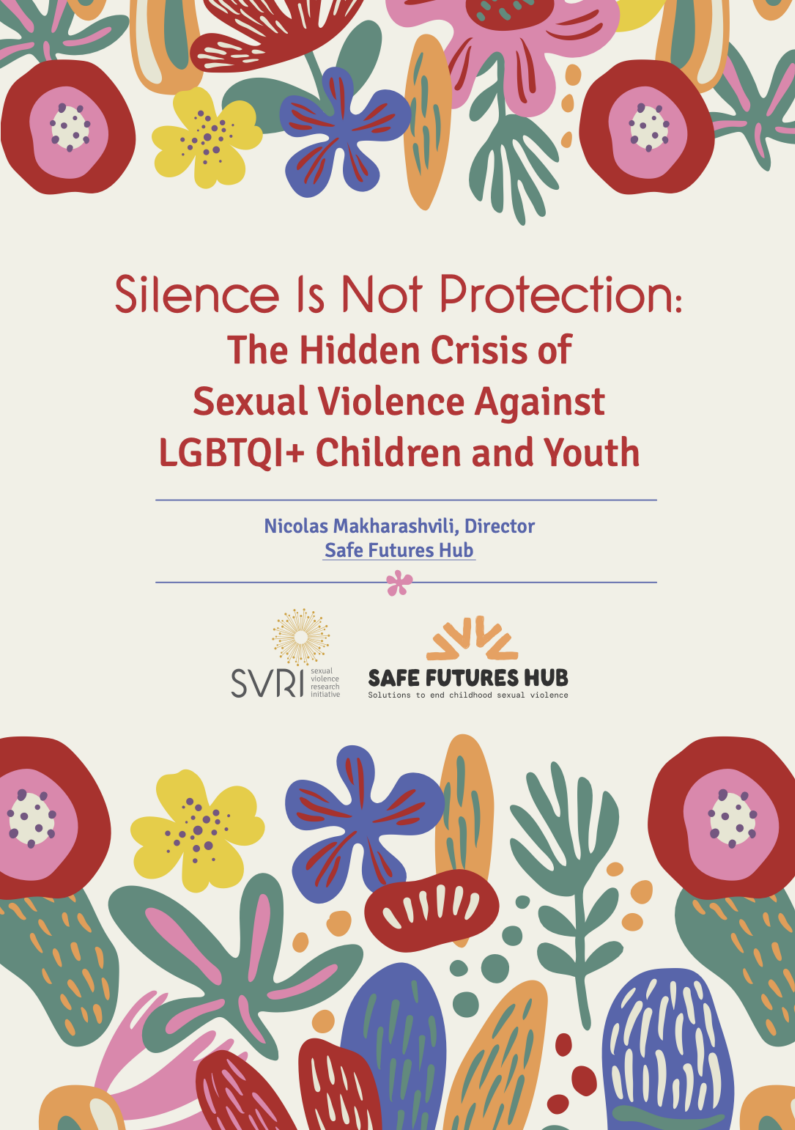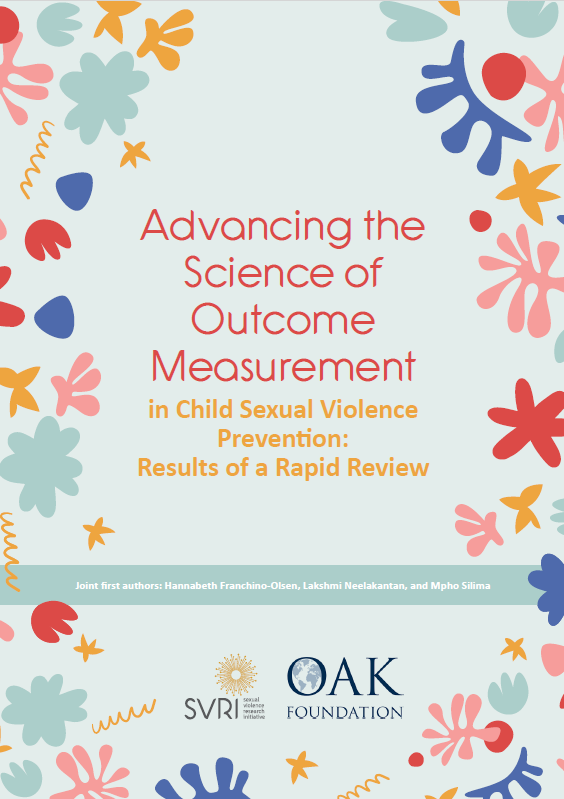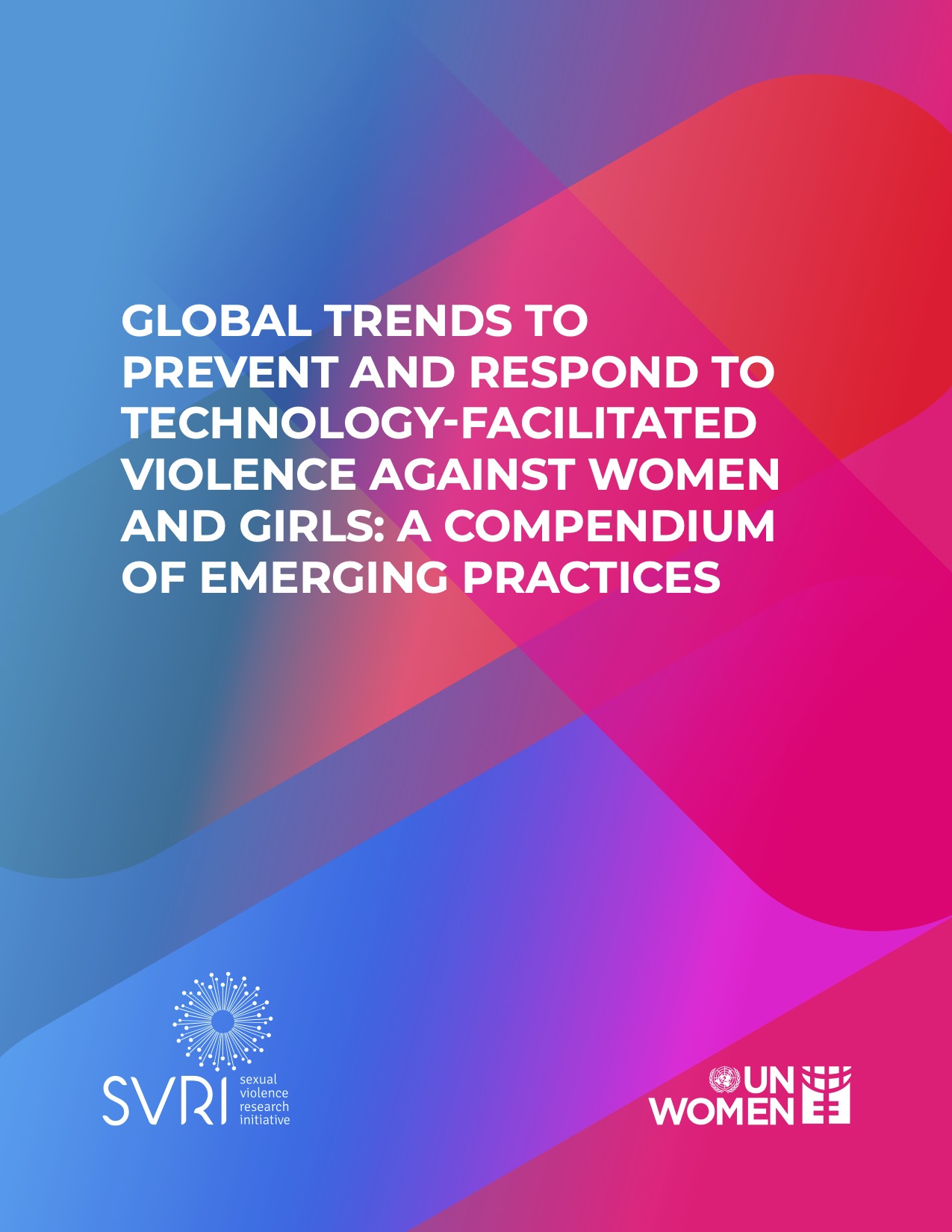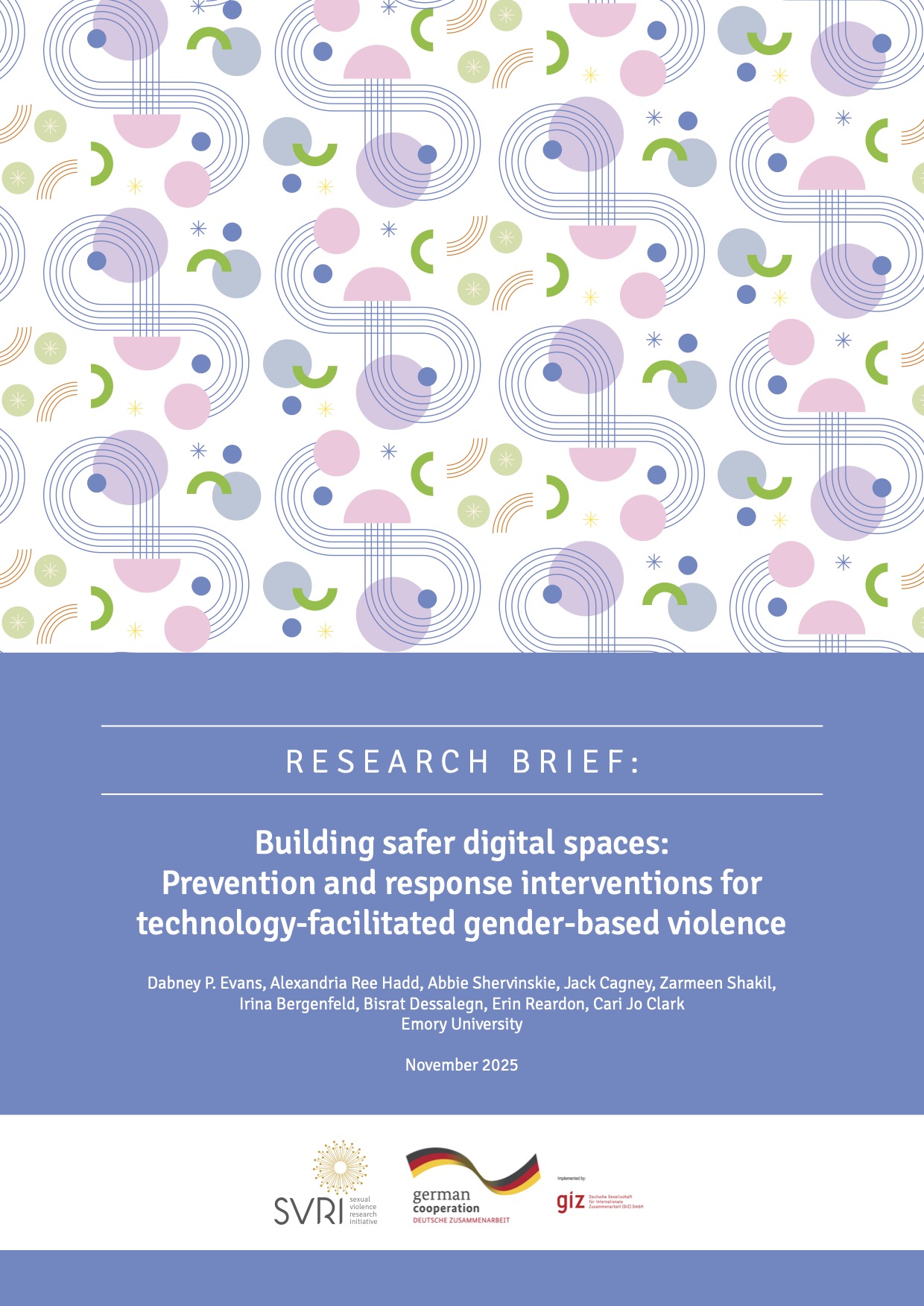SVRI building the field
Advancing research to end violence against women and violence against children in low and middle income countries
The SVRI is one of the largest global networks for advancing research on violence against women, violence against children, and other forms of violence driven by gender inequality. Founded in 2003, the SVRI brings together a diverse group of actors aiming to achieve a world free of violence against women and violence against children through improved practices and prevention programmes informed by evidence, with a focus on low and middle-income countries. We do this through building evidence, strengthening research capacity, promoting partnerships and influencing change. Our work is guided by the SVRI’s Strategic Plan 2025-2030. We are a feminist, women-led, non-profit organisation under South African law (SVRI NPC 2019/197466/08).

Our Work
BUILD EVIDENCE
Support and fund innovative research on VAW and VAC in low and middle-income countries | Identify, amplify, debate and disseminate new knowledge and trends in the field
STRENGTHEN CAPACITY
Strengthen capacity for quality, policy relevant research and practice
PROMOTE PARTNERSHIPS
Organise and convene the biennial SVRI Forum | Promote learning through knowledge exchanges | Leverage strategic partnerships
INFLUENCE CHANGE
Maximise the use of research for policy and practice | Raise awareness/advocate with donors and decision-makers




